Day 6: May Justice Take Root
BY JORDAN DENARI DUFFNER | February 22, 2021
Today’s Readings
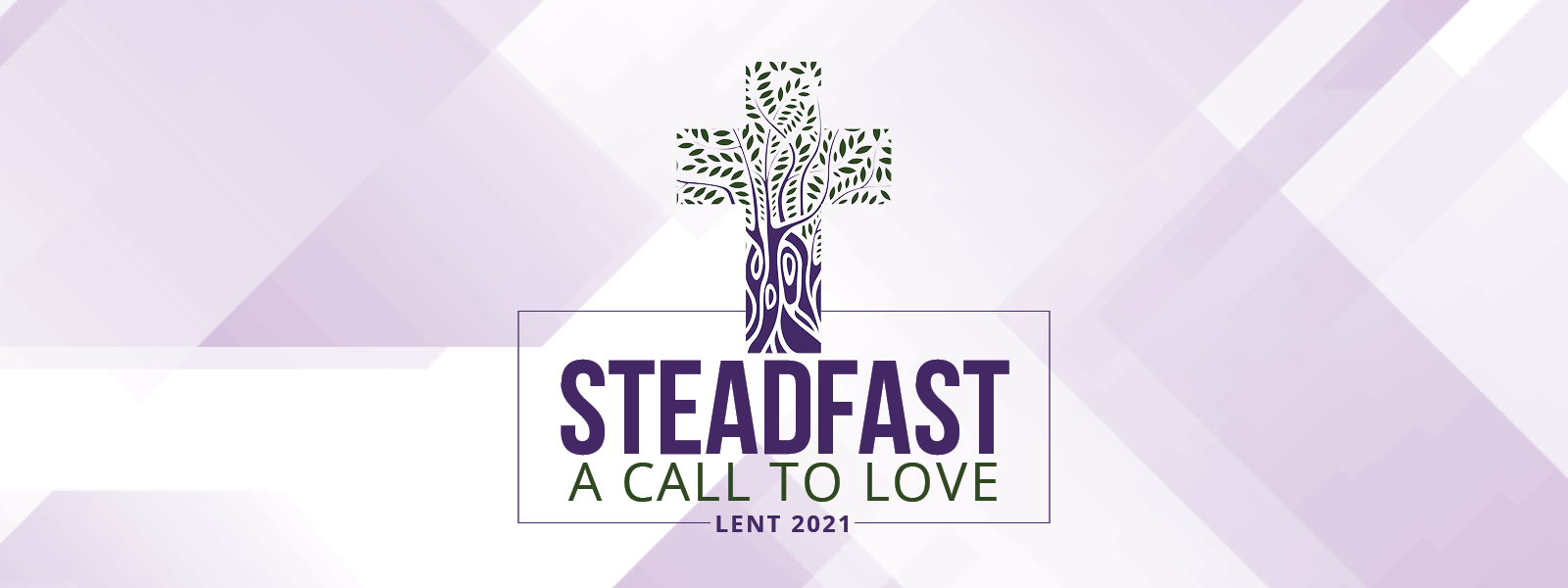
In January of 2020, I visited Israel-Palestine with a cohort of faculty and staff from Georgetown University as part of an interfaith pilgrimage. One of the last stops on our trip was a stone-strewn beach along the Sea of Galilee, next to a church built in honor of St. Peter, who is highlighted in today’s readings. It marks the place where Jesus called Peter to “tend his sheep” after the resurrection.

A statue of Jesus blessing Peter at the Church of the Primacy of Saint Peter.
As our group ambled toward the water, basalt rocks crunched under foot and the sun peeked through the rain clouds. Together on the beach, we—Catholics, Jews, Muslims, Protestants, and non-affiliated believers—prayed, laughed, collected shells, and waded into the water, a moment of joy and hope as we neared the end of our journey. For the previous week, we had visited inspiring religious sites but also been witnesses to the grave suffering that has plagued so many in that land. We saw firsthand the ways that Palestinians, living under Israeli control in the West Bank, face persistent injustices—inability to travel freely or find jobs, confiscation of homes, humiliation at checkpoints, arbitrary arrests and killings. We listened to Israeli and Palestinian parents whose children were murdered in the cycle of violence. And we met with ordinary Jews, Christians, and Muslims who are pushing for peace, dignity, and equality.
My memories of the pilgrimage, like today’s readings, prompt me to ponder these questions: What hidden sufferings does Christ want me to be a witness to? Who makes up the flock that I am called to tend? How can I better accompany those who live in the land where Jesus and Peter walked, and those beyond my own Catholic community? This Lent, I pray that bonds of interreligious solidarity are strengthened, that that justice takes root in the land that is holy to so many of us.
For Reflection:
- What suffering are you called to witness? How are you being called to respond?
- How can you better accompany and stand with those whose experiences differ from yours, particularly those impacted by injustice?
Jordan Denari Duffner is an author and scholar of Muslim-Christian relations. Her books are Islamophobia: What Christians Should Know (and Do) about Anti-Muslim Discrimination (spring 2021) and Finding Jesus among Muslims: How Loving Islam Makes Me a Better Catholic(2017). Dedicated to public theology, religious literacy, and combatting religious discrimination, Jordan is currently pursuing a Ph.D. at Georgetown University, and is a former recipient of a Fulbright research grant in Amman, Jordan.

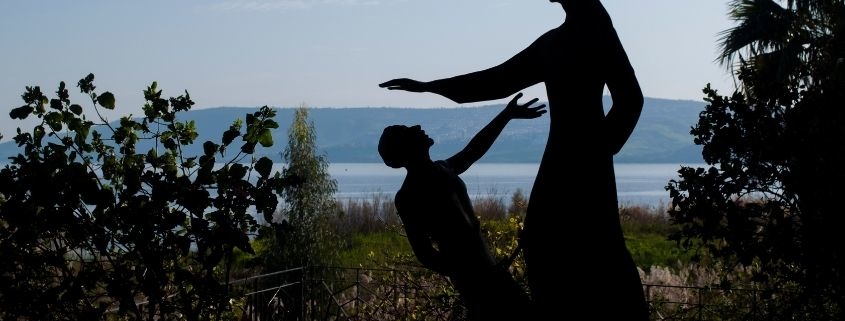
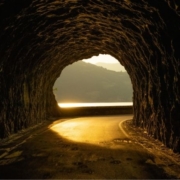
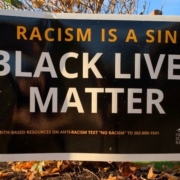
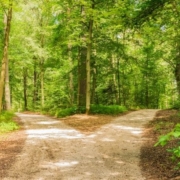
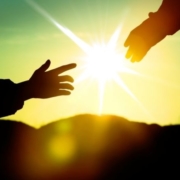
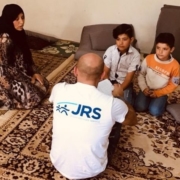
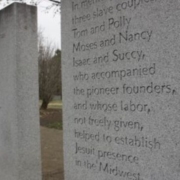


Especially since “pause” took on a new meaning last March, it has been such a challenge – witnessing the daily struggle of close family and friends, and even my own struggle – to figure out how to “do” and “be” in my small world, as well as nationally and globally. Attending webinars, reading books, listening to podcasts – such as offered by “On Being” and “Berkley Center” helps. (Rabbi Ariel Burger this past weekend, and Padraig O Tuama last week, provided Elie Weisel and Ruth and Naomi’s consolation and wise words.) Maybe this “pause” is so I can pray, reflect, and act, with wisdom and deliberation? Is this a universal call to pray, repent, retreat – so as to be ready to act and DO soon, very soon?
Yes, this time is especially difficult. There are so many who are hurting, but so little I can do beyond prayer and making donations. It is hard to figure out the “doing” part of Lent this year. Maybe a time to ponder bigger things that can be done as things open up?
Recently our parish had a speaker talking about domestic abuse. The priest gave a homily that attended to the audience with grace. He was compassionate and thoughtful. The woman he brought with him was a woman who suffered from domestic abuse in every way. She was articulate and compassionate of herself and I responded with horror and fear and an overwhelming disgust for those who participated in domestic violence. I prayed for this woman and all people who suffer like Jesus did on his way to the cross. I plead with Jesus to relieve them from the horror of this suffering and to fill their hearts with the graces to forgive and to compassionate to all who suffer in this way.
I have been called to witness so much suffering from covid.As an ICU nurse in Boston I am tired of the deaths and suffering. I do not understand where God is in all this. But I keep praying
You forgot to mention that of all Arab countries surrounding Israel, the one country that offers religious freedom, freedom of the press and citizenship ( to Arabs)is Israel.
I visited the Holy Land a couple years ago with my church. I also experienced the plight of Palestinians living under Israeli control in the West Bank. We had small group dinners at their homes and listened to their stories. I pray that there can be some reconciliation and that they don’t have to suffer because of the extremists in that area.
, face persistent injustices—inability to travel freely or find jobs, confiscation of homes, humiliation at checkpoints, arbitrary arrests and killings. We listened to Israeli and Palestinian
I am closely linked to Recovery and Service, and have been a member of Alcoholics Anonymous for many years. I feel my fellowship of AA is my herd, as well as the children I teach.
Interreligious Solidarity is what we practice. Everyone has a seat at the table of Freedom and Light.
This for me is the most important Lent in my life. During the covid 19 pandemic I suffered a heart attack which was brought on by anger, rage and bitterness which has been with me for the last fifty four years of my life which stem from early childhood trauma that has not been resolved. Since April of last year I have been separated from my family but my son comes and visits me every other weekend. The suffering that I am called to witness and finally confront is the suffering I have inflected on others for all these years through no fault of their own. I have been called to respond by fasting, prayer, and showing compassion to the people who are close to me which is a difficult thing to do when those around you are used to seeing you in a negative way. The only way I know to accompany and stand with those whose experience differ from ours particularly those impacted by injustice is just listen to them; to practice patience and humility in giving them the space that they need to heal. In my solitude I have been battling my own demons but through reading, writing and meditating in silence, I finally have been able to find God’s voice within me that says, “I love you and you have the power to change.” God bless you all.
Thanks. Indeed peace, dignity, and equality are vital for a healthy world-building.
Christian organisations often collaborate with Islamic organisation, no matter how radical their leaders could be, and do little to protect the rights of former Muslims or other minorities in Muslim lands, such as the Yazidi, Assyrian, Chaldean, Zoroastrian, Alevi, Bektashi, etc.
Christian organisations often ignore that Islamophobia as a concept has been used to attack Iranian women that refused to wear a headscarf after 1979. The same concept is used by Recep Erdogan to attack France. A way to divert attention to the persecution of Christians, Alevis, Kurds, free thinkers and feminists in Turkey.
Muslims care about Palestinians because their enemy is a Jew. They do not move a finger for the equally Muslim Saharawis, because the oppressor is also Muslim. Morocco is also a strategic ally of the United States, so it is not a matter of fighting Western imperialism.
The problem is that many Muslims believe that non-Muslims do not have the right to retake Muslim land. Therefore, they are not acting according to a religion but to an imperialist ideology.
After WWII; hundred thousands of Italians were forced to leave Yugoslavia, Germans left Poland and Russia, Greeks left Turkey, Jews left Northern African countries, Sikhs left Pakistan, Muslims left India, and Hindus left Bangladesh. But Palestinians are different and deny Israel the right to exist.
Thousands of Israelis protested on the streets against the new Israeli settlements in Palestinian lands.
How many Muslims protested when Muslim militias killed hundreds of thousands of non-Muslims in Bangladesh and Indonesia in the name of Islam?
Jordan Denari Duffner collaborates with the Bridge initiative, a Georgetown University program financed by a Saudi tycoon. They conduct a smear campaign against the main critics of orthodox Islam. That’s the “peaceful” version of Islam she likes – Wahhabi style. Maybe she’s not even aware of it.